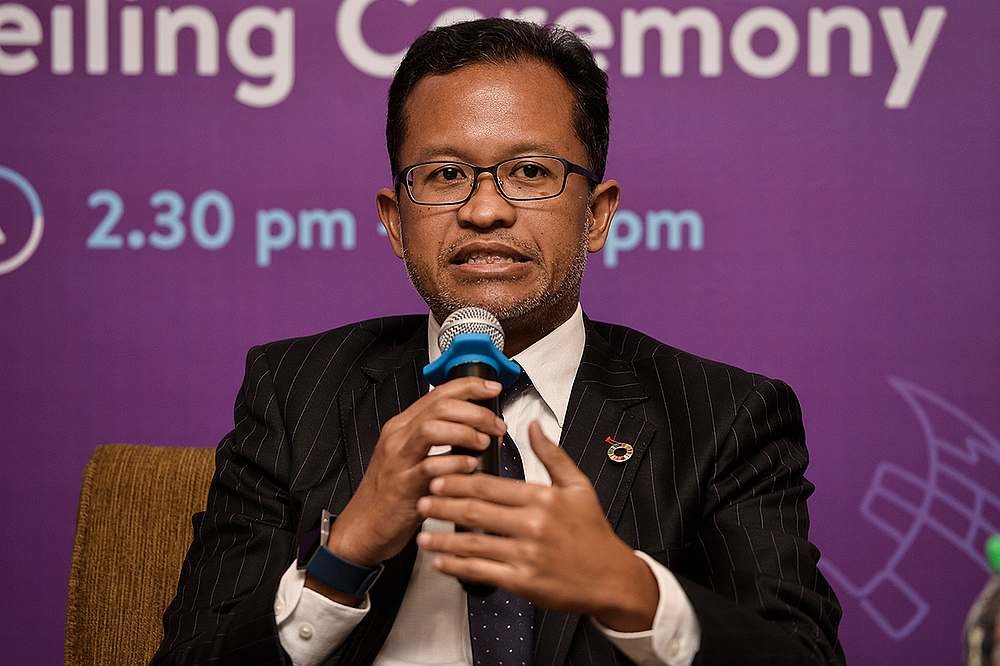KUALA LUMPUR, Sept 27 — The Peka B40 2024 report by ProtectHealth has revealed a concerning statistic highlighting a major health crisis amongst the B40 community.
The report found 70 per cent of the B40 community participants screened last year had at least one non-communicable disease (NCD) such as diabetes, hypertension, high cholesterol, or obesity.
According to the report, out of 301,650 B40 participants, 43.28 per cent had one NCD, while 21.81 per cent and 4.38 per cent had two and three NCDs, respectively.
Physical inactivity was identified as a primary factor for this high prevalence among the community.
Commenting on the findings of the report, public health consultant Dr Feisul Idzwan Mustapha attributed the issue to three significant contributing factors.
“First, the food environment: low-income areas are often filled with cheap, ultra-processed foods, while fresh fruits and vegetables remain less affordable,” he explained.
He continued by highlighting structural challenges such as long hours, shift work, crowded housing, and transport issues leave little time or space for healthy living.
Lastly, Dr Feisul pointed out life-course risks, noting that many Malaysians carry excess weight and metabolic risks from early adulthood.
“National surveys have long shown high rates of diabetes, hypertension, and obesity – burdens that fall hardest on the disadvantaged,” said Dr Feisul, who is also Perak State Health Department director.
Dr Feisul also emphasised the role of limited income in determining health outcomes.
“Income shapes health. When healthy foods cost more, families naturally trade down to filling, but nutrient-poor options; and global food price hikes have only compounded this reality.
“Studies show B40 families face barriers to healthy eating, and children grow up in neighbourhoods saturated with fast food outlets,” he said.
Additionally, he noted that financial stress creates biological strain, increasing the risk of chronic diseases.

Consultant public health physician Dr Feisul Idzwan Mustapha warns that if the high prevalence of NCDs remains unaddressed, it will have a twofold impact on the healthcare system. — Picture by Miera Zulyana
Impact on the healthcare system
Dr Feisul warned that if the high prevalence of NCDs remains unaddressed, it will have a twofold impact on the healthcare system.
“Medically, we are seeing strokes, heart attacks, and kidney failure occur earlier in life – right in the most productive working years.
“Economically, the cost is staggering as Malaysia’s NCD burden was estimated at over RM64 billion annually in lost productivity and healthcare costs,” said Dr Feisul.
He stressed the importance of investing more in prevention and early control to avoid rising costs from long-term medications, hospital admissions, and dialysis.
“Simply put, prevention today is the most cost-effective investment for tomorrow,” he added.
Action plans
Moving forward, Dr Feisul emphasised that addressing the issue requires not just health campaigns but demands coordinated action across multiple sectors, following a clear action plan that includes:
Make healthy choices the default: Set nutrition standards in schools and workplaces; curb marketing of unhealthy foods to children; promote food reformulation to reduce sugar, salt, and fat.
Protect B40 households: Strengthen the sugar-sweetened beverage tax and explore subsidies for healthier staples like vegetables and whole grains.
Strengthen primary care: Utilise PeKa B40 as a gateway for screening and follow-up, supported by team-based and digital care. Act early on pre-hypertension, prediabetes, and pre-obesity.
Design active cities: Build safer walking and cycling routes, encourage public transport, and make daily movement part of urban life.
According to Dr Feisul, Malaysia already has a list of proven, high-return interventions, but the challenge is to scale them quickly and fairly.
“At the same time, change cannot happen without personal ownership. That is why the MOH launched the rallying call ‘Sihat Itu Saya’ during Wellness Month in 2025.
“It translates to ‘Health starts with me.’ This is not just a slogan – it is a reminder that while policies and systems matter, every individual also plays a role,” said Dr Feisul.





